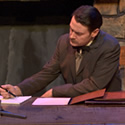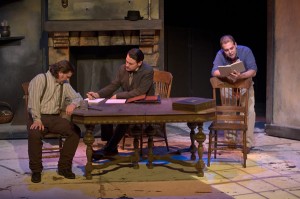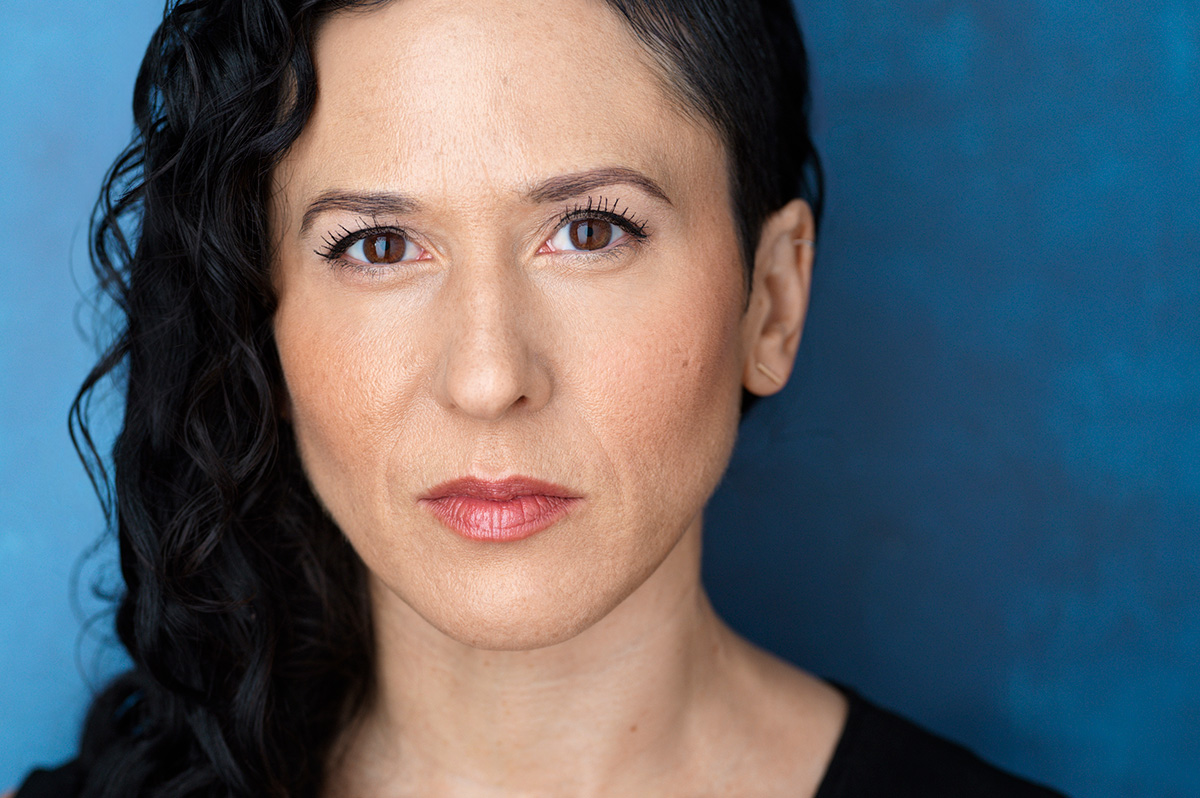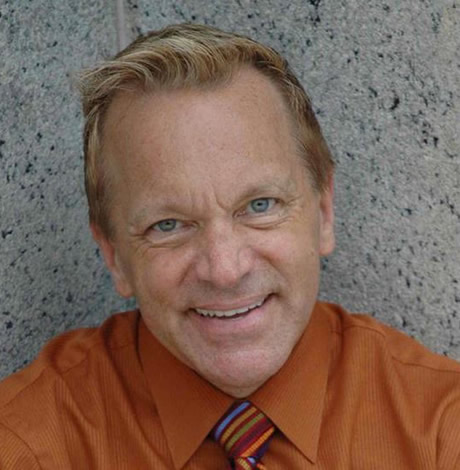Theater
Theater potpourri
Last weekend to catch several worthy productions in the D.C. area

‘A Shadow of Honor’
by Peter Coy
8 p.m. tonight and Saturday
closes 3 p.m. Sunday
The Keegan Theater
at Church Street
1742 Church Street
Dupont Circle
703-892-0202 or keegantheatre.com‘Genesis’
by Evan Crump
8 p.m. tonight and Saturday
closes 3 p.m. Sunday
The Warehouse Theater
1021 7th St. N.W.
(back room at the Passenger)
202-213-2474 or cityartisticpartnerships.org‘Twilight of the Golds’
by Jonathan Tolins
8 p.m. tonight and Saturday
2:30 p.m. Sunday
through Feb. 5
Reston Community Players
Center Stage Theater
Reston Community Center
2310 Colts Neck road
Reston, Va.
703-476-4500 or rcp-tix.com
or box office‘Return to Haifa’
adapted by Boaz Gaon
from the novella by Ghassan Kanafani
11 a.m. today; 8 p.m. Saturday
3 and 7:30 p.m. Sunday
closes Sunday
Theater J
Goldman Theater
D.C. Jewish Community Center
1529 16th St., N.W.
800-494-TIXS or theaterj.org

From left, Mark A Rhea, Jon Townson and Michael Innocenti in 'A Shadow of Honor. It closes Sunday at the Keegan Theatre. (Photo by Jim Coates; courtesy of Keegan)
Good and evil, theology and science, past and present — these polarities loom large in four plays now on stage in Washington.
Closing on Sunday, a Keegan Theatre production at the Church Street Theater is the world premiere of Peter Coy’s multi-layered melodrama about history, “A Shadow of Honor,” the story of two families, each haunted by the ghosts of two wars — the Civil War and the Vietnam War — and the dead who gave the last full measure of devotion with their bloodshed.
“It is those I killed who are truly damned by God” thunders the alcoholic William Ruffin (ably played by Mark A. Rhea, Keegan’s founder and producing artistic director), author of the cold-blooded murder that happened in Nelson County, in Virginia’s Shenandoah Valley in 1907, an incident discovered by Hamner Theater co-artistic director and playwright Coe in what he calls “a murder motivated by honor.”
The scene is set in the same house, with two troubled families in two places in time, 1907 and 2007. When past and present collide, something must give. And in each case, the smoking gun is murder, one committed by an 11-year-old boy when begged to pull the trigger by his father, damaged goods from Vietnam where he had earned, at great cost, a Silver Star. Another shadow falls with the gunfire in 1907, when Ruffin decides he must kill the man who deflowered his daughter and swears that “I’m a hero in the eyes of all true Southerners.” He tells his daughter, “I’ve taken my stand,” and later, “I love the South even though it exists no more!”
Michael Innocenti stars in a stand-out role as high school history teacher Tyler McNeill, the boy now grown to manhood yet shadowed still by his complicity in his father’s death. Watch him in his motor-mouth rush of words about the stress he feels, his voice a strangled cry of pain held inside, and attention must be paid when he pesters his wife Kathy, asking, “Didn’t you know that the South is the most violent part of the country?” As always, Anton Chekhov was right to say that when a gun is seen on stage it will surely be fired before the last act ends. The fear shown by his pregnant wife, in a riveting portrayal by Shannon Listol, is palpable as her voice shakes and her body quakes in abject terror.
Also closing this weekend, unless there’s a last minute rescue in the Warehouse Theater schedule that permits an extended run for two more weeks, is another play by a playwright from this region, D.C. resident Evan Crump, whose two-act drama “Genesis” about a mental patient who believes himself to be a fallen angel won the 2010 Capital Fringe Festival award for Best Drama. Retooled since last summer by Crump and especially by director John C. Bailey, a gay actor who is literary curator for D.C.’s Ganymede GLBT Arts Company, this play, which is a meditation on “the human condition,” astounds with its passion and crackles with electricity from mystery-shrouded start to ambiguous finish.
Actor Derek Jones, with glistening bald pate and his sinewy sleek ebony physique much on display, for he is shirtless much of the time, inhabits the role of the eponymous “Genesis” like he was alive in the role, not acting it. As his performance unspools, inside an asylum for the criminally insane, where he has been diagnosed as a paranoid schizophrenic (his doctor calls it “some form of delusional psychosis”), his beautifully dangerous mind always seem rational and his story becomes increasingly credible of being literally a fallen angel. But the question of whether he is sane or insane, convict or saint, human or angel, is never fully answered.
Worth a trip out to Reston’s Community Center Stage Theater in Fairfax County is a play about the “gay gene” (assuming one is ever located in the human genome) and the ethical dilemma of whether parents might abort such a child as eugenic prophylaxis. Written by gay playwright Jonathan Tolins and helmed by gay director Andrew J.M. Regiec, “The Twilight of the Golds” tests the limits of love and acceptance in a drama that ran briefly on Broadway in 1993. Then, the actress Jennifer Grey (best known for playing Frances “Baby” Houseman in the 1987 hit film “Dirty Dancing”) played Suzanne (in Reston the role is played by Jennifer Cambert) who is pregnant and whose husband, a genetic researcher, discovers irregularities in the unborn child’s genetic makeup. Though completely healthy, the baby will likely be born gay, like Suzanne’s younger brother David, an opera set designer.
David (played in the Reston production by Andy Izquierdo) appears to have it all: a loving partner, a supportive family, but now he is drawn into the family debate over the fate of the child. Harvard graduate Tolins, a former writer and co-producer of “Queer as Folk” during its first season on Showtime in 2001 and also an actor who played the gay quarterback in the 2003 film “Totally Sexy Loser,” adapted “Twilight of the Golds” for a Showtime movie in 1997, featuring actors Brendan Fraser as David and Jennifer Beals (of “Flashdance” fame) as Suzanne. It was nominated for a GLAAD media award for outstanding made-for-TV movie that year.
Tolins, who has written for Bette Midler’s road-show tours and her current Las Vegas extravaganza, “The Showgirl Must Go On,” also spent time for two years writing for the Academy Awards show and the 2003 Tony Awards program. He now lives in Connecticut with his husband Robert Cary and their two children. His newest play “Glad Tidings,” is nominated for a GLAAD media award for outstanding New York City play, to be announced March 19.
Finally, there’s “Return to Haifa,” from Israel’s premier flagship theater company, Cameri Theater, now resident through this Sunday only at Theater J, at the D.C. Jewish Community Center’s Goldman Theater. The play, adapted by an Israeli Jew, Boaz Gaon, from the short novella by Palestinian Arab writer Ghassan Kanafani, brings to life the heart-rending saga of two couples — one Palestinian and the other Jewish-Israeli — who must face complex questions of loss and identity when the Palestinian couple returns to the home they fled in 1948 to learn the fate of the baby son they left behind. Now a soldier in the Israeli army, Dov meets his birth parents who had named him Khaldun, as he clings to his mother, a Holocaust survivor who raised him from infancy.
The play — performed in Hebrew and Arabic, with English surtitles — is a meditation on trauma and how to move beyond such wounds. Kanafani himself, assassinated in a 1972 car-bomb, probably by the israeli Mossad, was a spokesman for the militant Popular Front for the Liberation of Palestine, viewed by Israel and Western governments at the time as a terrorist group. Yet in his novella, he acknowledged that Jews in Israel had also suffered, not just Arabs, and his empathy for such suffering marked his work as an unusual document to help build bridges. But even so, in Israel, most theater companies turned down the chance to produce “Return to Haifa” until the Cameri Theater stepped forward, and the production itself was dogged by protestors from Israel’s anti-Arab far-right.
The play is gripping for its look into the heart of anger and the soul of reconciliation. You will not soon forget the feelings it can stir. But Theater J has sought ways to go beyond these feelings, however, with a companion series of other plays and discussions it calls “Voices from a Changing Middle East: Portraits of Home,” including on Sunday night the play by Ben Brown, “The Promise,” set in London in 1917 when the future president of Israel, Chaim Weitzman maneuvered with British notables to support the right of Jews to return to a Zionist Israel. For more information on this series, see theaterj.org.
Theater
‘Andy Warhol in Iran’ a charming look at intersection of art, politics
Mosaic production plumbs kidnapping plot of iconic artist for humor

‘Andy Warhol in Iran’
Through July 6
Mosaic Theater Company at Atlas Performing Arts Center
1333 H St., N.E., WDC
$70
Mosaictheater.org
Behind the blasé veneer, Andy Warhol was more curious than people knew. Particularly when it came to money. He kept a close eye on how the ultra-rich lived, what fellow artists were being paid and who was paying them, and, of course, all the new and more saleable ways of making and selling art.
In playwright Brent Askari’s “Andy Warhol in Iran,” now playing at Mosaic Theater Company, Warhol (Alex Mills) is brought outside of his usual area of interest when he lands face to face with a young revolutionary. While Warhol could be artistically revolutionary, he didn’t connect with the idea of forgoing the pursuit of money and fame for the infinitely more difficult task of achieving social justice.
The 90-minute play is not fully factual, but rather inspired by Warhol’s real life 1976 trip to Tehran to make portraits of the royal Pahlavi family in the waning days of their reign, with a focus on Farah Diba, the Shah’s elegant wife and Iran’s last empress.
The action unfolds in a Tehran hotel suite boasting a glorious view of the snowcapped Alborz Mountains not far from Iran’s vibrant and bustling capital. It’s here, disguised as room service, that Farhad (played by Nathan Mohebbi) gains entrance to Warhol’s rooms, seeking to kidnap the pop art star to garner attention for the university students’ movement.
Warhol meets the armed intruder with a sort of wide-eyed wonderment, flummoxed why he has been selected for abduction. Warhol can’t understand why a young man like Farhad wouldn’t prefer to be paid a big ransom on the spot, or be cast as a star in one of the Warhol Factory flicks.
When Farhad replies it’s because Warhol is the most decadent artist in the world, Warhol mistakenly takes it for the ultimate compliment. After all, his biggest successes had been connected to celebrity and consumerism (think Campbell’s Soup Cans. 1962).
For Warhol, decadence is aspirational. He made portraits of financiers, movie stars, and jet setters. In fact, he’d been obsessed with the lives of the rich and famous since he was a small kid in Pittsburgh thumbing through Photoplay Magazine while bed bound with Saint Vitus Dance.
Accompanying Warhol to Tehran (unseen) are his business manager Fred Hughes, and Bob Colacello, editor of Interview magazine. Together, they make a merry trio of gay social climbers. These kinds of trips were a boon to the artist. Not only did they solidify a new strata of high society contacts, but were also superbly lucrative, thickly padding the painter’s pockets.
While in Iran, Warhol wanted only to view Farah’s vast world-class collection of jewels, sample the caviar on tap, and get his Polaroids. Then he’d fly first class back to New York and transfer the images to silk screen and sell the portraits to the Persian royals at a hefty price. He didn’t foresee any obstacles along the way.
Serge Seiden’s direction is spot on. He’s rendered a wonderfully even two-hander with a pair of terrifically cast actors. And Seiden plumbs the piece for humor mostly drawn from the absurdity of the situation without missing any of the serious bits.
As Warhol, out actor Mills is instantly recognizable as the eccentric artist. He’s wearing the button-down shirt, jeans, blazer, glasses, and, of course the famed shock of white hair wig (here a little more Karen than Andy). His portrayal is better than an imitation. He gives a bit of the fey and confused, but has also infuses him with a certain dynamism.
The energy works well with the intensity of Mohebbi’s would-be kidnapper Farhad. And while it isn’t a romance, it’s not impossible to think that Warhol might fall for a handsome male captor.
The connection between art and politics is almost always interesting; and though not a super deep dive into the era or the life of an artist, “Andy Warhol in Iran” is a compelling, charming, and sometimes funny glimpse into that intersection.
Theater
‘Hunter S. Thompson’ an unlikely but rewarding choice for musical theater
‘Speaks volumes about how sad things land on our country’

‘The Untitled Unauthorized Hunter S. Thompson Musical’
Through July 13
Signature Theatre
4200 Campbell Ave., Arlington, Va.
$47 to $98
Sigtheatre.org
The raucous world of the counterculture journalist may not seem the obvious choice for musical theater, but the positive buzz surrounding Signature Theatre’s production of Joe Iconis’s “The Untitled Unauthorized Hunter S. Thompson Musical” suggests otherwise.
As the titular, drug addled and gun-toting writer, Eric William Morris memorably moves toward his character’s suicide in 2005 at 67. He’s accompanied by an ensemble cast playing multiple roles including out actor George Salazar as Thompson’s sidekick Oscar “Zeta” Acosta, a bigger than life Mexican American attorney, author, and activist in the Chicano Movement who follows closely behind.
Salazar performs a show-stopping number — “The Song of the Brown Buffalo,” a rowdy and unforgettable musical dive into a man’s psyche.
“Playing the part of Oscar, I’m living my Dom daddy activist dreams. For years, I was cast as the best friend with a heart of gold. Quite differently, here, I’m tasked with embodying all the toxic masculinity of the late ‘60s, and a rampant homophobia, almost folded into the culture.”
He continues, “My sexuality aside, I like to think that Oscar would be thrilled by my interpretation of him in that song.
“Our upbringings are similar. I’m mixed race – Filipino and Ecuadorian and we grew up similarly,” says Salazar, 39. “He didn’t fit in as white or Mexican American, and fell somewhere in the middle. Playing Oscar [who also at 39 in 1974 forever disappeared in Mexico], I pulled out a lot of experience about having to code switch before finally finding myself and being confident just doing my own thing.
“As we meet Oscar in the show we find exactly where’s he’s at. Take me or leave me, I couldn’t care less.”
In 2011, just three years after earning his BFA in musical theater from the University of Florida in Gainesville, Salazar fortuitously met Iconis at a bar in New York. The pair became fast friends and collaborators: “This is our third production,” says George. “So, when Joe comes to me with an idea, there hasn’t been a moment that I don’t trust him.”
In “Be More Chill,” one of Iconis’s earlier works, Salazar originated the role of Michael Mell, a part that he counts as one of the greatest joys of artistic life.
With the character, a loyal and caring friend who isn’t explicitly queer but appeals to queer audiences, Salazar developed a fervent following. And for an actor who didn’t come out to his father until he was 30, being in a place to support the community, especially younger queer people, has proved incredibly special.
“When you hear Hunter and Oscar, you might think ‘dude musical,’ but I encourage all people to come see it.” Salazar continues, “Queer audiences should give the show a shot. As a musical, it’s entertaining, funny, serious, affecting, and beautiful. As a gay man stepping into this show, it’s so hetero and I wasn’t sure what to do. So, I took it upon myself that any of the multiple characters I play outside of Oscar, were going to be queer.
Queer friends have seen it and love it, says Salazar. His friend, Tony Award-winning director Sam Pinkleton (“Oh, Mary!”) saw Hunter S. Thompson at the La Jolla Playhouse during its run in California, and said it was the best musical he’d seen in a very long time.
“Since the work’s inception almost 10 years ago, I was the first Oscar to read the script. In the interim, the characters’ relationships have grown but otherwise there have been no major changes. Still, it feels more impactful in different ways: It’s exciting to come here to do the show especially since Hunter S. Thompson was very political.”
Salazar, who lives in Los Angeles with his partner, a criminal justice reporter for The Guardian, is enjoying his time here in D.C. “In a time when there are so many bans – books, drag queens, and travel — all I see is division. This is an escape from that.”
He describes the Hunter Thompson musical as Iconis’s masterpiece, adding that it’s the performance that he’s most proud of to date and that feels there a lot of maturity in the work.
“In the play, Thompson talks to Nixon about being a crook and a liar,” says Salazar. “The work speaks volumes about how sad things land on our country: We seem to take them one step forward and two steps back; the performance is almost art as protest.”
Theater
A hilarious ‘Twelfth Night’ at Folger full of ‘elegant kink’
Nonbinary actor Alyssa Keegan stars as Duke Orsino

‘Twelfth Night’
Through June 22
Folger Theatre
201 East Capitol St., S.E.
$20-$84
Folger.edu
Nonbinary actor Alyssa Keegan (they/them)loves tapping into the multitudes within.
Currently Keegan plays the melancholic Duke Orsino in Folger Theatre’s production of Shakespeare’s romantic comedy “Twelfth Night.” Director Mei Ann Teo describes the production as “sexy, hilarious, and devastating” and full of “elegant kink.”
Washington-based, Keegan enjoys a busy and celebrated career. Her vast biography includes Come From Away at Ford’s Theatre; Cat on a Hot Tin Roof (Helen Hayes Award, Best Actress) and Paula Vogel’s How I Learned to Drive, both at Round House Theatre; Diana Son’s Stop Kiss directedby Holly Twyford for No Rules Theatre Company; and Contractions at Studio Theatre, to name just a few.
In addition to acting, Keegan works as a polyamory and ethical non-monogamy life and relationship coach, an area of interest that grew out of personal exploration. For them, coaching seems to work hand in hand with acting.
WASHINGTON BLADE: You’re playing the lovesick Orsino in Twelfth Night. How did that come about?
ALYSSA KEEGAN: The director was looking to cast a group of actors with diverse identities; throughout auditions, there were no constraints regarding anyone’s assigned sex at birth. It was really a free for all.
BLADE: What’s your approach to the fetching, cod-piece clad nobleman?
KEEGAN: Offstage I identify as completely nonbinary; I love riding in this neutral middle space. But I also love cosplay. The ability to do that in the play gives me permission to dive completely into maleness.
So, when I made that decision to play Orsino as a bio male, suddenly the part really cracked open for me. I began looking for clues about his thoughts and opinions about things like his past relationships and his decision not to date older women.
Underneath his mask of bravura and sexuality, and his firmness of feelings, he’s quite lonely and has never really felt loved. It makes sense to me why his love for Olivia is so misguided and why he might fall in love with the Cesario/Viola character.
BLADE: As an actor, do you ever risk taking on the feelings of your characters?
KEEGAN: Prior to my mental health education, yes, and that could be toxic for me. I’ve since learned that the nervous system can’t tell the difference between real emotional distress and a that of a fully embodied character.
So, I created and share the Empowered Performer Project. [a holistic approach to performance that emphasizes the mental and emotional well-being of performing artists]. It utilizes somatic tools that help enormously when stepping into a character.
BLADE: Has changing the way you work affected your performances?
KEEGAN: I think I’m much better now. I used to have nearly debilitating stage fright. I’d spend all day dreading going onstage. I thought that was just part of the job. Now, I’ve learned to talk to my body. Prior to a performance, I can now spend my offstage time calmly gardening, working with my mental health clients, or playing with my kid. I’m just present in my life in a different way.
BLADE: Is Orsino your first time playing a male role?
KEEGAN: No. In fact, the very first time I played a male role was at the American Shakespeare Center in Staunton, Va. I played Hipolito in Thomas Middleton’s The Revenger’s Tragedy.
As Hipolito, I felt utterly male in the moment, so much so that I had audience members see me later after the show and they were surprised that I was female. They thought I was a young guy in the role. There’s something very powerful in that.
BLADE: Do you have a favorite part? Male or female?
KEEGAN: That’s tough but I think it’s Maggie the Cat. I played the hyper-female Maggie in Tennessee Williams’ Cat on a Hot Tin Roof at Round House. In the first act she didn’t stop talking for 51 minutes opposite Gregory Wooddell as Brick who barely had to speak. That lift was probably the heaviest I’ve ever been asked to do in acting.
BLADE: What about Folger’s Twelfth Night might be especially appealing to queer audiences?
KEEGAN: First and foremost is presentation. 99% of the cast identify as queer in some way.
The approach to Shakespeare’s text is one of the most bold and playful that I have ever seen. It’s unabashedly queer. The actors are here to celebrate and be loud and colorful and to advocate. It’s a powerful production, especially to do so close to the Capitol building, and that’s not lost on any of us.
-

 District of Columbia5 days ago
District of Columbia5 days agoActivists protest outside Hungarian Embassy in DC
-

 Virginia4 days ago
Virginia4 days agoSpanberger touts equality, reproductive rights in Arlington
-

 Books4 days ago
Books4 days agoTwo new books on dining out LGBTQ-style
-

 Theater4 days ago
Theater4 days ago‘Andy Warhol in Iran’ a charming look at intersection of art, politics







